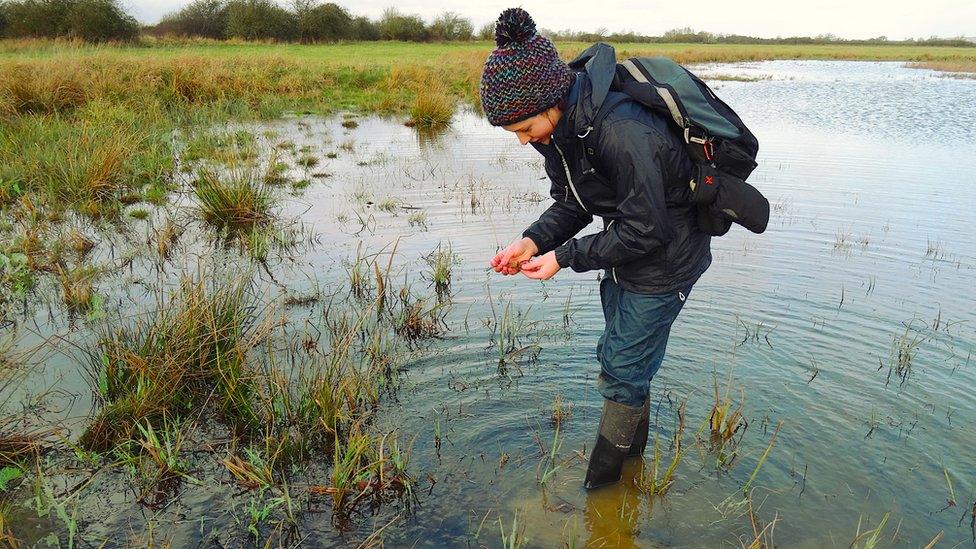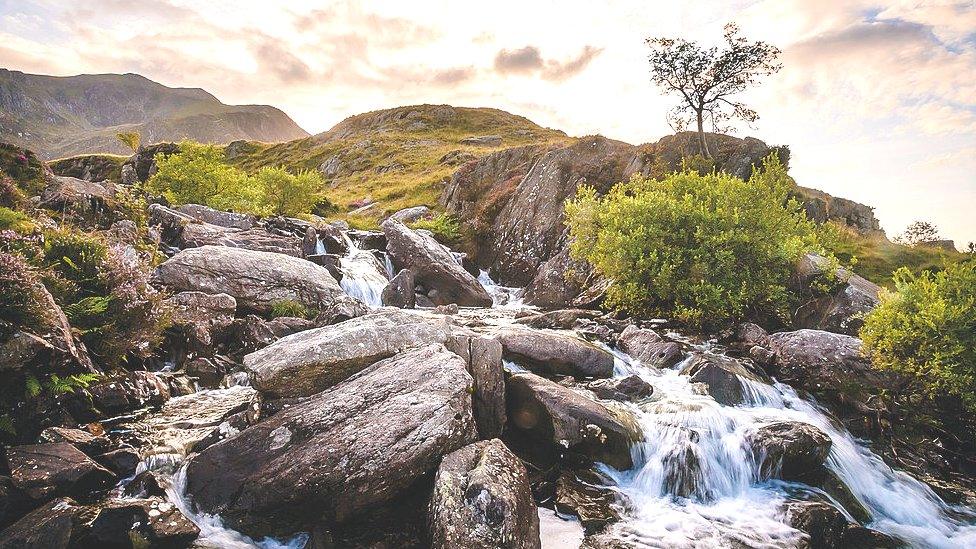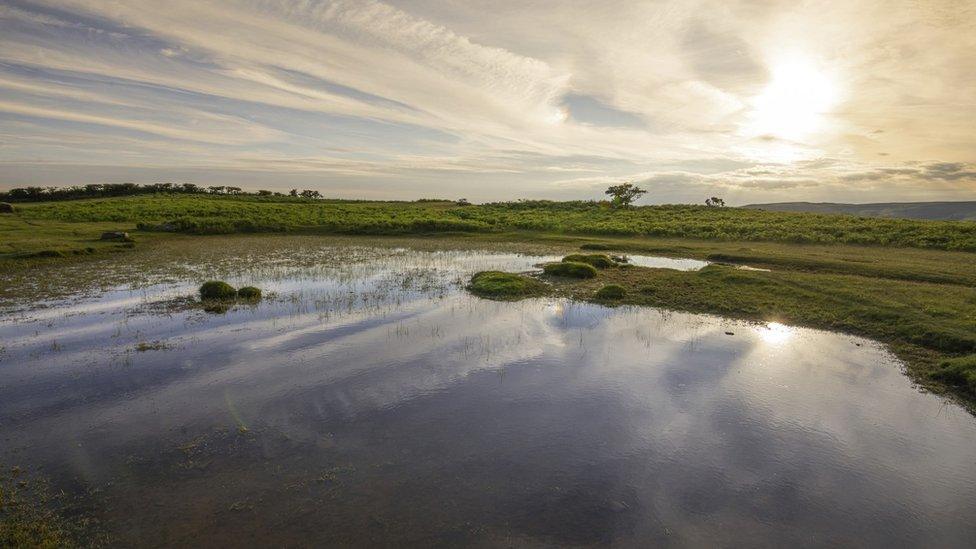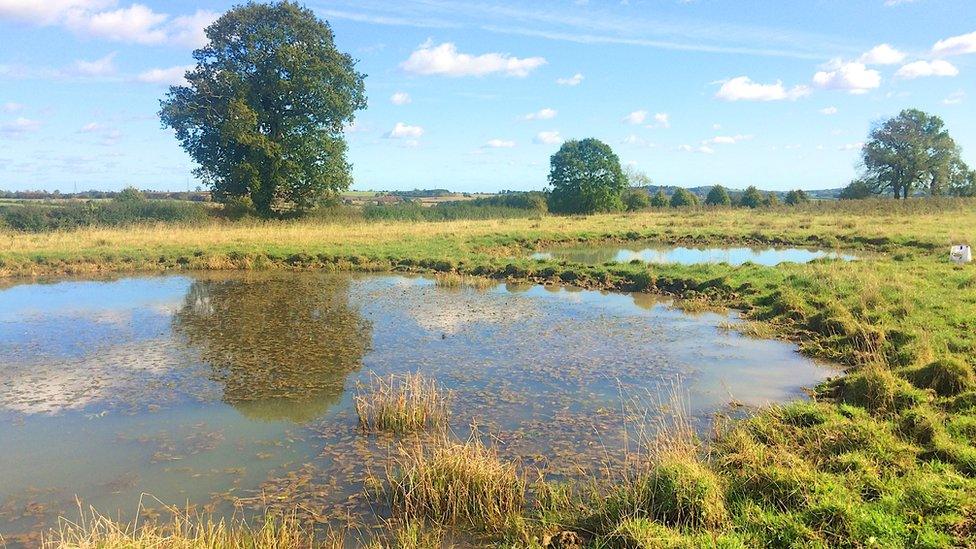Small waters 'can help address biodiversity crisis'
- Published

Ponds harbour a multitude of plants, insects, fish and amphibians
Experts are calling for urgent action to protect England's ponds, ditches and streams.
Small freshwater habitats contain an abundance of life, including rare amphibians, insects and plants, they say.
Yet, unlike large lakes and rivers, there is no obligation to monitor and protect them.
A group of 20 scientists outline their concerns in a letter to the government's natural capital committee.
They are calling for measures to monitor, manage and protect England's smallest freshwater habitats.
The letter points out that small water bodies make up 80% of England's freshwaters and support over 70% of freshwater species, but lack any formal monitoring in the UK.

Freshwater habitats vary in size
Dr Jeremy Biggs of the charity, the Freshwater Habitats Trust, who organised the letter, said better protection of ponds and streams could help address the biodiversity crisis.
"Small water bodies are at least as important as big water bodies because there are a lot more of them and they are very rich biologically," he said.
Freshwater lakes of 50 hectares and above, and about a third of large rivers and streams, are monitored under EU regulations.

Begwns Pond near Hay-on-Wye is a site of special scientific interest
But there is no obligation to monitor the richness of life in ditches, ponds and small streams.
These habitats support a large number of freshwater species, including crested newts, toads, fish, water beetles, dragon flies and wetland plants such as the water-violet.
Follow Helen on Twitter, external.
- Published3 June 2020
